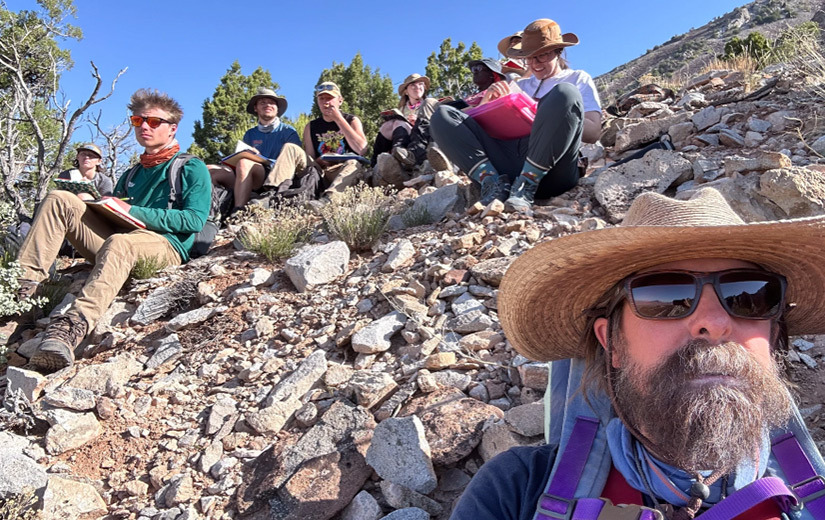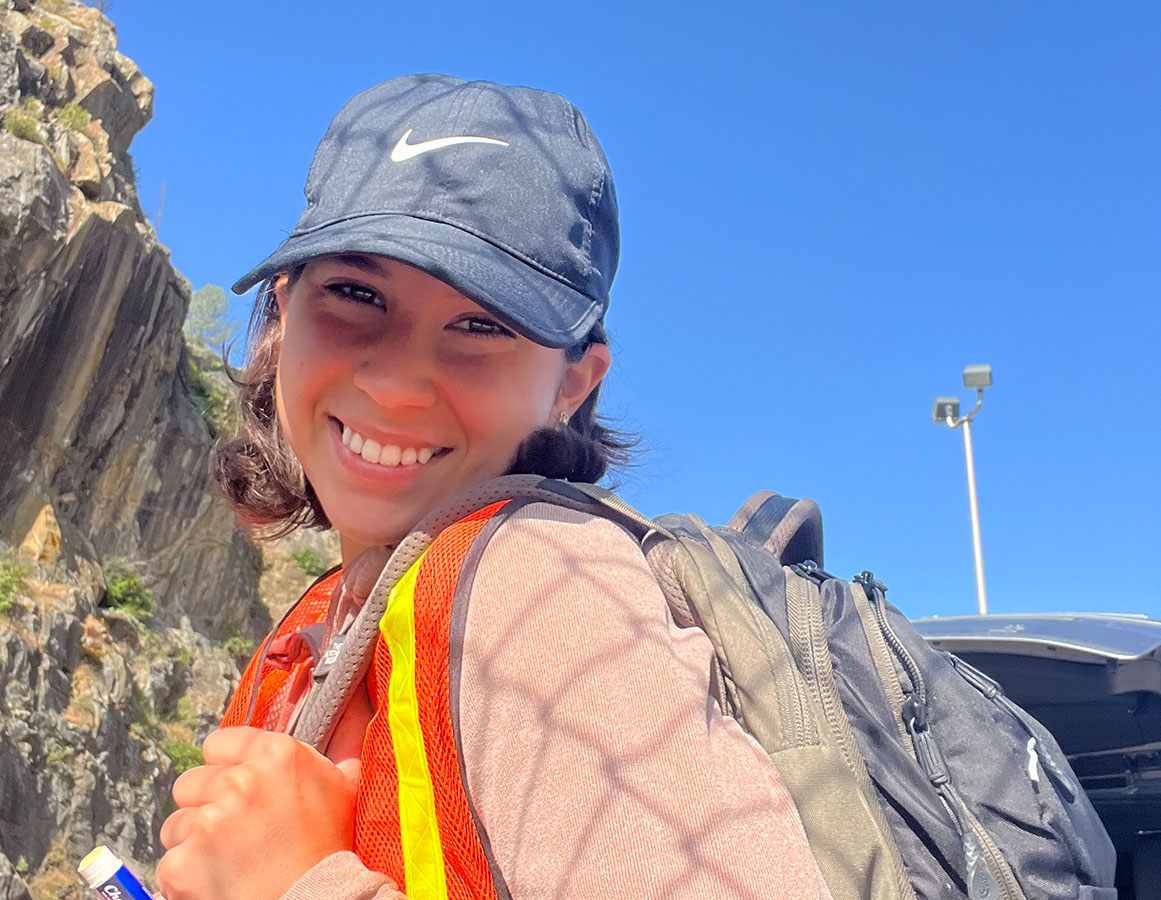For University of South Carolina geology students, learning doesn’t end with lectures or labs—it opens wide beneath the big skies of the American West. Every summer, geology majors trade textbooks for topographic maps and step into the field for a capstone experience that’s as challenging as it is transformative: geology field camp.
“It’s the most challenging thing I’ve done,” says Asher Hunter, a senior geology major. “But that’s what makes it so worthwhile. It’s not something I’ll forget in a hurry.”
For three weeks, students like Hunter get to hike, map and sleep under the stars in some of the most geologically diverse regions in the country. From Utah’s red rock canyons to the rolling terrain of Nevada, each site tells a story.
“This is where classroom learning becomes real,” says geology major Emma Driller. “Every single campsite was more beautiful and breathtaking than the last. It was just epic.”
Field camp is more than a degree requirement—it’s a rite of passage. It's where future geologists learn to read the land, test their limits and trust their peers. For Hunter, that meant grappling with the brutal desert heat, ascending 8,000-foot mountains and long days of mapping with no air conditioning in sight.
But it also meant forging friendships, learning to listen to others' insights and gaining skills that will support his future career in mining.
“This trip is helpful for that future goal because it allowed me to be able to practice describing geologic units, geological mapping and writing scientific reports,” he says.
These unforgettable experiences are now more accessible and expansive thanks to the generosity of Bruce and his wife Olive “Terry” Baganz. In 2024, the couple established the Bruce P. and Olive W. Baganz Geology Field Camp Endowed Fund with a commitment to help cover camp costs, guest experts, equipment and student scholarships.
Founding a field camp had long been a dream for Bruce, a USC graduate who earned his master’s and Ph.D. in geology in the 1970s. At the time, USC offered local weekend excursions, but no formal camp. He credits his own undergraduate field experience in Yellowstone with shaping his career.
“The single-most defining experience for undergraduate geology majors is participation in a summer geology field camp,” Baganz says. “One cannot learn geology unless they can learn how to look and describe to other geologists what they’re seeing.”
Together, Bruce and Terry, both professional geologists, wanted to ensure today’s students, regardless of financial background, could gain the same formative experiences that shaped their lives. Their support is helping USC’s field camp expand to new, diverse sites, giving students exposure to a wider range of geologic environments and mapping challenges.
“These are the kinds of opportunities that make an impact for a lifetime,” says Hunter. “It made me a better geologist, a better listener, a better teammate and a more appreciative person.”
Driller echoed that sentiment, saying the field camp gave her tools she’ll carry not just into her career, but into life.
“The geology department at USC is unique in how much the professors care,” she says. “They don’t just want you to pass. They want you to take this knowledge and do something with it.”
One of those professors, geology field camp director and professor David Barbeau, heads up the field camp each summer, even maintaining a blog to keep his followers in the loop. Students have raved about his enthusiasm for teaching in the field as much as they have his camp cooking.
“I will go to my grave thankful to have the opportunity to be involved in something so transformative and strengthening for our students,” says Barbeau, “in a time when they face such a daunting and uncertain future, wherein the resilience of thriving through field camp seems to pay significant dividends.”
While students sent postcards back from the field, describing ancient rock layers and desert sunrises, they were doing more than mapping the land—they're tracing their own path forward.
Driller hopes to pursue a career in geospatial data with the United States Marine Corps, where interpreting landscapes accurately and efficiently is essential. Field camp gave her the hands-on experience she needs to succeed on that path.
“Being able to observe and correctly interpret what is going on in the ground is extremely important,” she says. “All the skills I got to work on in field camp are almost directly transferable to my dream career.”

